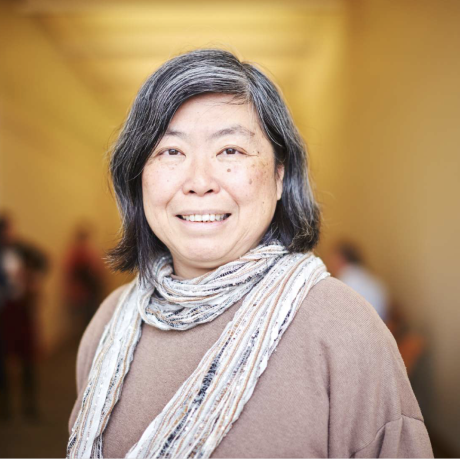Xianping He
Director of Community Development, Asian Media Access.
Armed with Community Health Degree from Saint Cloud State University and proficiency in multiple Asian languages, Xianping has been actively involved with community health services in the Asian American and Pacific Islander (AAPI) community since 2012. She leads AMA’s Health Promotion division for developing materials along the Bicultural Active Living Lifestyle, and empowers the cultural isolated residents to value their own cultural practices through diverse language promotions. She has conducted an annual city-wide Community-Based Research Project about youth attitude of good health; along with Health Education opportunities.
Ange Hwang
Executive Director of Asian Media Access
Ange Hwang, the Executive Director of Asian Media Access (AMA). For the past 28 years, through AMA, Ange has worked to bring in more understanding about different communication patterns among diverse groups and how to design public health information targeting the specific ethnic community. Hwang received her Master from University of Iowa. She has been working on the Asian American and Pacific Islander (AAPI) civil, social and health issues through training, and video productions for the past 2 decades, and has won numerous awards for her works.
She has developed and produced numerous National Initiatives, including: What About Us, and Bicultural Healthy Living, etc., which aim to increase cultural resilience among AAPIs by catalyzing the development of the high-quality educational materials and trainings nationwide. Hwang is known for her analytical approach to the subjects and foresights to issues buried under layers, adding on a special touch with her bi-cultural backgrounds.
Steve Lu
Director of Multimedia Technology, Asian Media Access
Steve is the Director of Multimedia Technology, Asian Media Access, and an active Asian American and Pacific Islander (AAPI) community leader. Steve has conducted multimedia training, media advocacy and public education campaigns in key inequality areas since the 1990s, addressing issues such as: communication barriers, substance prevention, health disparities, violence/crime victims and gender inequality, etc. He has designed many preventive education materials, health data collection, community-based research projects with/for AAPI youth. These educational workshops, trainings and public education campaigns are all based on the idea of providing AAPI community with the culturally and linguistically appropriate information to enable them to take charge of their own course and improve their lives.
He has also consulted to many not-for-profit organizations, including universities, service organizations and professional associations.
